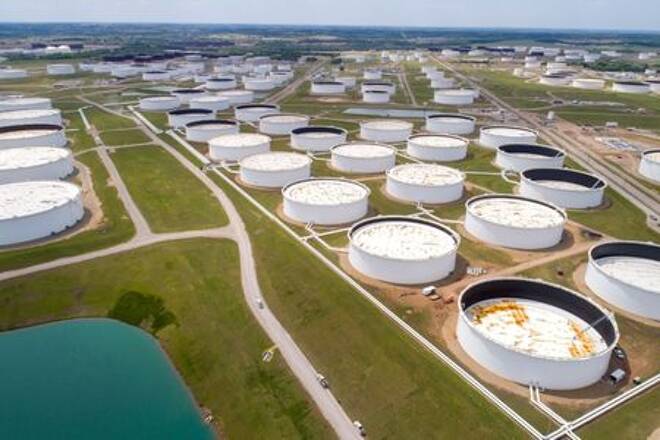Advertisement
Advertisement
Oil Rebounds After White House Says not Calling for U.S. Output Hike
By:
NEW YORK (Reuters) -Oil gained Wednesday, changing course after the Biden administration said it would not call on U.S. producers to increase crude output, and that efforts to increase OPEC production were a longer-range plan.
The market was also bolstered by a government report showing U.S. crude supplies fell last week, shifting the spotlight away from production from the Organization of the Petroleum Exporting Countries.
Brent crude is up about 35% this year, supported by OPEC-led supply curbs, even after the global benchmark oil last week suffered the steepest weekly loss in four months on worries that travel restrictions to curb coronavirus infections would hit demand.
Brent was up 48 cents, or 0.7%, to $71.13 a barrel by 1:09 p.m. ET , following a 2.3% rally on Tuesday. Earlier in the session it had dipped to a low of $69.07 a barrel.
U.S. West Texas Intermediate (WTI) was up 65 cents, or 0.9%, to $68.94, after a 2.7% jump on Tuesday.
Prices fell early in the session after the White House said in a statement that the Biden administration had urged OPEC and its partners to boost production.
The market reversed course after the White House later said its outreach to OPEC members and its oil-producing allies are ongoing and aimed at long-term engagement, not necessarily an immediate response.
The administration added that it had not called upon U.S. producers to ramp up production, which led the market to turn higher, said Phil Flynn, a senior analyst at Price Futures Group in Chicago.
OPEC+, consisting of the cartel and allies like Russia, agreed in July to boost output by 400,000 barrels per day a month starting in August until the rest of their output cuts are phased out.
The producers have been gradually easing a record cut of 10 million bpd, about 10% of world demand, made in 2020 as oil use recovers from the pandemic-induced slump.
The Energy Information Administration (EIA) said on Tuesday that U.S. job growth and increasing mobility had boosted gasoline consumption so far this year.
On Wednesday, EIA data showed crude oil stockpiles fell last week, while gasoline inventories dipped to their lowest level since November. Overall, crude inventories have been on the decline for several weeks due to increased demand.
U.S. fuel consumption, as measured by product supplied, fell in the most recent week, but over the last four weeks, sits at 20.6 million bpd, roughly in line with 2019 levels.
Analysts said if fuel demand starts to decline as a result of the Delta variant of the coronavirus, it would be negative for energy prices.
“We did see a fairly decent setback in overall product demand. That’s the point in today’s report that could cause the most concern considering the backdrop of the Delta variant and overall uncertainty,” said Tony Headrick, energy market analyst at CHS Hedging.
For a look at all of today’s economic events, check out our economic calendar.
(Additional reporting by Sonali Paul, Florence Tan and Alex Lawler; Editing by Marguerita Choy and David Evans)
About the Author
Reuterscontributor
Reuters, the news and media division of Thomson Reuters, is the world’s largest international multimedia news provider reaching more than one billion people every day. Reuters provides trusted business, financial, national, and international news to professionals via Thomson Reuters desktops, the world's media organizations, and directly to consumers at Reuters.com and via Reuters TV. Learn more about Thomson Reuters products:
Advertisement
